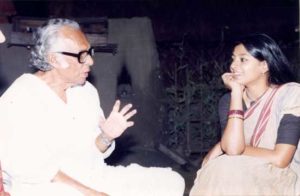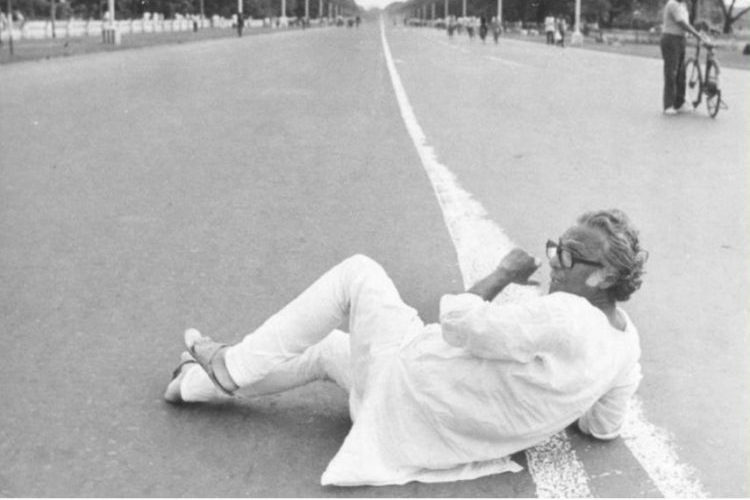Mrinal Sen, whose death “marks the end of Golden Age of Indian cinema’s stalwart filmmakers” (Hindustan Times), was commemorated in this workshop which took place on 20 May 2019.
The great Indian Bengali director died in Kolkata on 30 December 2018 at the age of 95, leaving a legacy of award-winning realist leftist films, which had won awards at all major international film festivals, including Cannes, Berlinale and Venice. Mrinal Sen, Satayajit Ray and Ritwik Ghatak pioneered the New Wave cinema in India. His obituary in The Guardian spoke of Sen as ‘one of Indian cinema’s most probing recorders of the country’s social fabric’.
The event featured several contributions about the work of the director and its social context, followed by a film screening and a discussion. Sanghita Sen spoke on curating Mrinal Sen’s work for various programming situations. Shruti Narayanswami discussed Sen’s early film Neel Akasher Neechey (1958), which tells the story of an immigrant Chinese worker in Calcutta: one of the rare instances where Indian and Chinese cultures intersect in the cinema of the subcontinent. The programme included video contributions from the director’s son Kunal Sen, as well as by famous actress Nandita Das, who had most recently appared in his Amar Bhuvan (2002).
We screened Sen’s classic film Calcutta 71 (1972), a black and white complex masterpiece with a narrative that alternates between stories and different points in time. An angry young man is on trial in 1971, a rainstorm wrecks a slum in 1933, a lower-middle-class family is starving during the 1943 famine, teenagers turn smugglers in 1953, and a middle-class group chatter in a posh hotel in 1971.
Workshop initiator Sanghita Sen went on to discuss the work of the director in the transnational context of Third Cinema, at a talk in Bangladesh later in 2019, as covered in The Dhaka Tribune.
